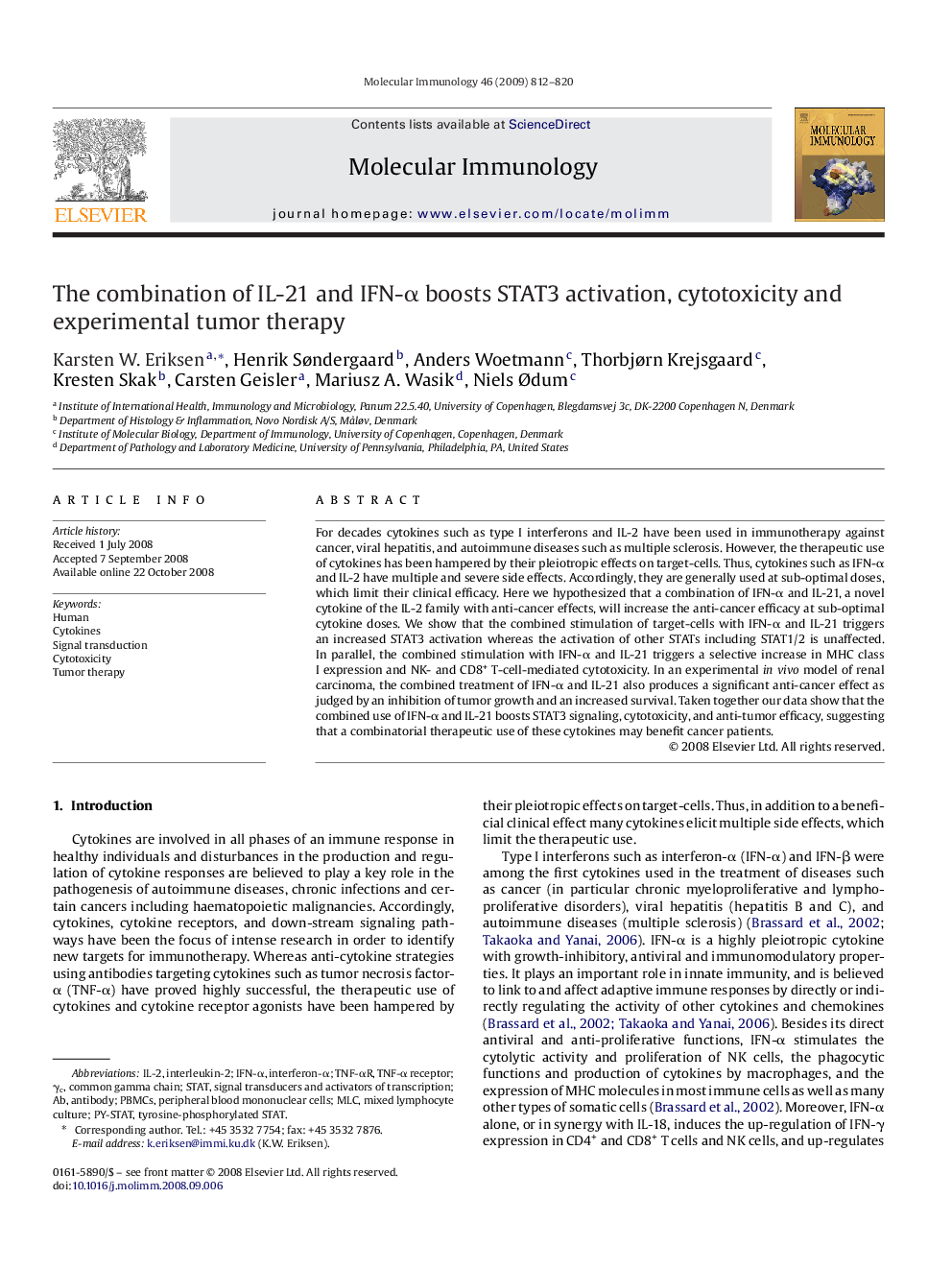| Article ID | Journal | Published Year | Pages | File Type |
|---|---|---|---|---|
| 2831543 | Molecular Immunology | 2009 | 9 Pages |
For decades cytokines such as type I interferons and IL-2 have been used in immunotherapy against cancer, viral hepatitis, and autoimmune diseases such as multiple sclerosis. However, the therapeutic use of cytokines has been hampered by their pleiotropic effects on target-cells. Thus, cytokines such as IFN-α and IL-2 have multiple and severe side effects. Accordingly, they are generally used at sub-optimal doses, which limit their clinical efficacy. Here we hypothesized that a combination of IFN-α and IL-21, a novel cytokine of the IL-2 family with anti-cancer effects, will increase the anti-cancer efficacy at sub-optimal cytokine doses. We show that the combined stimulation of target-cells with IFN-α and IL-21 triggers an increased STAT3 activation whereas the activation of other STATs including STAT1/2 is unaffected. In parallel, the combined stimulation with IFN-α and IL-21 triggers a selective increase in MHC class I expression and NK- and CD8+ T-cell-mediated cytotoxicity. In an experimental in vivo model of renal carcinoma, the combined treatment of IFN-α and IL-21 also produces a significant anti-cancer effect as judged by an inhibition of tumor growth and an increased survival. Taken together our data show that the combined use of IFN-α and IL-21 boosts STAT3 signaling, cytotoxicity, and anti-tumor efficacy, suggesting that a combinatorial therapeutic use of these cytokines may benefit cancer patients.
